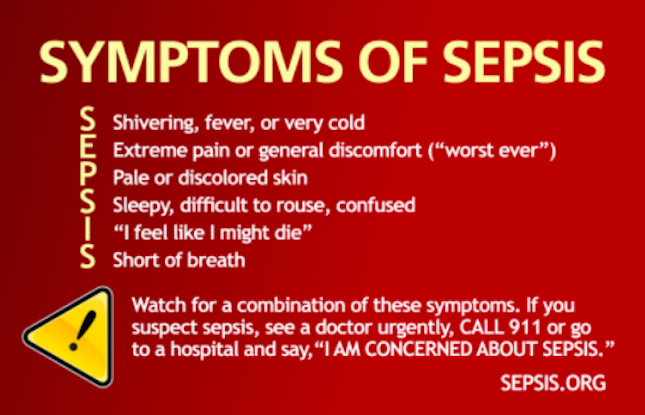Luke Hanoman is 28 and, yes, like a lot of people, he has been known to bite his nails.

Hanoman has two children and lives in Southport in the UK. And one time when biting his nails, he tore off a bit of skin.
"I bit the nail and it pulled down the side of my nail and got infected," he told BuzzFeed News.
He didn't think much of it, but he started to have flu-like symptoms, which began to get worse, and included cold sweats, fever, and chills, as first reported by the Sun. His finger swelled and began throbbing, and he had trouble focusing. However, he thought he was fighting off a viral infection and he continued to go to work that week because he didn't want to take time off.
He thought he just needed to rest on Friday, and slept until 2 p.m. the next day. His mother recognized his symptoms were serious and called a National Health Service hotline, which told them he needed to go to the hospital.
He ended up spending four days in the hospital last July on intravenous antibiotics to treat sepsis, which is a massive immune response to an infection that can lead to a drop in blood pressure, organ failure, and death.
Doctors told him he was lucky to be alive.
Overall, 1.7 million people in the US get sepsis each year, and 270,000 die from it.

Sepsis is the number one cause of death in people who are already hospitalized.
What happens is that an infection can spread, and when it does, it can trigger a cascade of events in the body, Dr. Steven Simpson, the medical director of the Sepsis Alliance, told BuzzFeed News. The infection, and the immune response, can lead to septic shock and tissue damage.
Getting treated with antibiotics early is crucial, because if it goes on too long, it can go past the point where antibiotics can stop the sepsis.
"It almost doesn’t matter then if you get antibiotics, if you kill off the bacteria, because you’ve started a vicious cycle of inflammation, organ damage, and tissue damage that your body just perpetuates itself," he said.
Simpson, who didn't treat Hanoman, said that the man probably was lucky to be alive because he waited for several days before getting help. Many people — even some doctors — don't recognize sepsis soon enough or know it's a true medical emergency that needs to be treated rapidly, he said.
"Waiting too long is dangerous," he said. "When you have these kind of symptoms people need to seek medical attention."
Sepsis symptoms include fever, chills, and extreme pain, among others.

Some additional signs of sepsis are an elevated heart rate (above 90 beats per minute), shortness of breath, pale or discolored skin, confusion or difficulty thinking, swelling, and a fast respiratory rate.
"A simple little local infection should not give you fevers and chills — it should not make you shiver," said Simpson. And extreme pain is another sign, he said. "I’ve seen people get sepsis from an ingrown hair and you know how painful that is."
Anyone can get sepsis from any infection, but some are at higher risk, including people over 65 or those who have weakened immune systems because they have had an organ transplant, are undergoing chemotherapy, or are taking corticosteroids.
The most common infection sources for sepsis are pneumonia and urinary tract infections, Simpson said. "However, skin infections are not terribly far behind."
Since many women are prone to urinary tract infections, they often recognize the symptoms, which can include pain and burning, frequent urges to urinate, and cloudy urine that may also contain blood. "But if you have those symptoms associated with a high fever or a rapid pulse rate it means it’s time to get to the ER," he said.
As for nail biters, Simpson also had some recommendations. "If you get that really tender area around your nail bed or around your cuticle, and it’s really tender and you start seeing the redness creep up your finger, you should get attention now," he said. "Antibiotics now could be a lifesaver."
